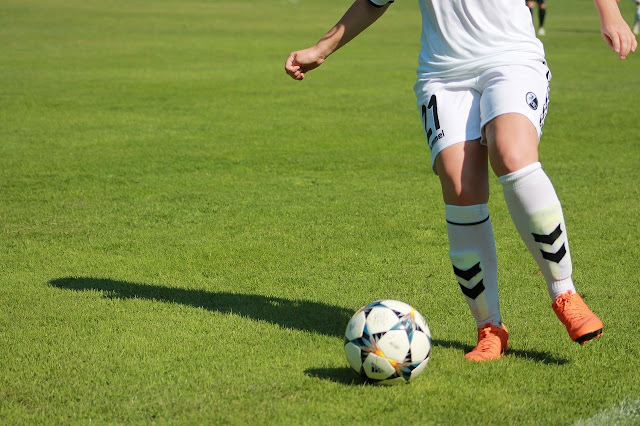Why do children get angry? This is the psychological argument
Why do children get angry? This is the psychological argument
Children's anger is a natural emotion, which is part of their emotional development.
Psychological theories show that anger is mainly due to limited cognitive and emotional abilities.
Parents need to teach positive behavior and create a healthy environment to manage anger.
Children have their own ways of showing anger. Some cry, some sit in a daze, roll on the floor, hit people nearby, bite, throw things, spill food, and even spit milk when they are fed.
Children get very angry even when they are not able to speak, even over small things.
Why do children get so angry, what kind of psychology is at work in this?
Children's anger is a natural emotion, which is part of their emotional development. Anger, like in adults, arises in children for a variety of reasons, but their expression and management of anger often differ because their brains and emotional control systems are not fully developed.
From a psychological perspective, various theories and research have made important contributions to understanding and addressing children's anger.
Why does anger arise?
Anger is a basic human emotion that arises when there is an obstacle, dissatisfaction, injustice, or expectations not being met. According to psychologist Sigmund Freud, anger is a defense mechanism that serves to protect a person from stressful or uncomfortable situations. In the case of children, anger often arises from their limited cognitive and emotional abilities, environmental influences, and social interactions.
The part of the brain that is responsible for decision-making, emotion control, and reasoning, the prefrontal cortex, is not fully developed in children. Neuroscience research has shown that the prefrontal cortex does not mature until adolescence. Therefore, when children get angry, they react immediately, such as: screaming, crying, fighting, throwing something or hitting with whatever they find. This is because they have less ability to control their emotions or analyze them logically.
Main reasons why children get angry
1. Physical needs not being met
Hunger, fatigue, lack of sleep can lead children to become irritable and angry. For example, young children cry or scream when they are hungry or tired. This is due to the activation of the amygdala in their brain, which controls stress and emotional reactions.
This problem is especially common during adolescence. Changes in hormones during this time also increase anger and irritability. This is less applicable to young children.
Studies have shown that genetics are also responsible for children having a tendency to get angry a lot. Studies have shown that if one or both parents are very angry, children are also more likely to be angry. If parents have poor anger management, children may also exhibit this behavior.
4. Unmet expectations
Most children become angry because their expectations are not met. A child asks for something or insists on going somewhere and gets very angry if his or her wishes are not met. This psychological theory is related to the ‘frustration-aggression hypothesis’, which states that obstacles or failures lead to anger or aggressive behavior.
5. Lack of self-esteem and control
Anger arises when a child feels helpless or unable to control himself or herself. For example, if a child has difficulty doing homework, he or she may throw a book in anger.
6. Learning and imitation
According to psychologist Albert Bandura’s social learning theory, children learn from the behavior of the people around them. If parents or friends express anger aggressively, children also learn the same behavior.
7. Family and social environment
The situation at home is tense, parents keep fighting, and parents or people older than them show harsh behavior to children. If parents repeatedly scold, stress them, or humiliate them, children show anger in response. When this continues, children become accustomed to being angry a lot.
This applies not only to the family but also to the school and neighborhood environment. For example, if a child is teased, teased, or bullied by friends, children develop a rebellious spirit. They may show anger and aggressive behavior.
8. The impact of technology
Watching violent videos on TV and online, playing such games can have an impact on children and learning to become angry and aggressive. Stimulating videos and games weaken children's emotional control.
Psychological theories of anger
Various psychological theories help to understand children's anger.
1. Maslow's hierarchy of needs theory
According to the theory of American psychologist Abraham Maslow, if children's basic needs (food, security, love) are not met, they will become angry or irritable. If a child does not receive enough love or attention, he will become angry and tries to draw attention.
2. Erikson's Theory of Psychosocial Development
According to German psychoanalyst Erik Erikson, children face different psychosocial challenges at different ages. For example, children aged 2-3 seek independence. If they are not allowed to exercise their independence, they show anger or stubbornness.
3 Piaget's Theory of Cognitive Development
According to the theory of Swiss psychologist Jean Piaget, children's cognitive development affects their emotional reactions. Young children have a self-centered mindset, which makes it difficult for them to understand the perspectives of others. As a result, they get angry even at small things.
Effects of Anger
Children express anger in various ways,
- Hitting, throwing things, or kicking.
- Yelling, cursing, or crying.
- Stopping talking, sitting alone, or being stubborn.
Uncontrolled expression of anger can have a negative impact on children's mental health, social relationships, and even their studies. Later, it can also lead to depression, anxiety, or the development of an aggressive personality.
- Children should be taught to identify and express their feelings, anger, sadness, and happiness. Listen carefully to what is on their mind, be serious about their situation, and make them understand the situation. If children ask to do something that is not possible, most children are convinced when you explain in a gentle way why it is not possible.
- If children show anger, do not get angry, normalize it, and play a role in calming the anger.
- Parents can calm their anger, do not show anger in front of children, do not treat them harshly, and if there is a problem, they can set a positive example for children by managing it in a logical way.
- There are many people in society who find it fun to tease, tease, and intimidate children, and such behavior can make children very angry.
If we have that kind of habit, it is better to give it up. If there are such people, it is better for parents to remind them not to do that.
-A regular routine, adequate sleep, and healthy food reduce children's irritability, which reduces the feeling of anger.
-If the child is old enough to understand, it is better to remind him about the harm caused by anger. How much anger can be harmful can also be taught by linking it to a context or story. This develops the feeling that anger should be controlled in children.


Comments
Post a Comment
If you have any doubts. Please let me know.